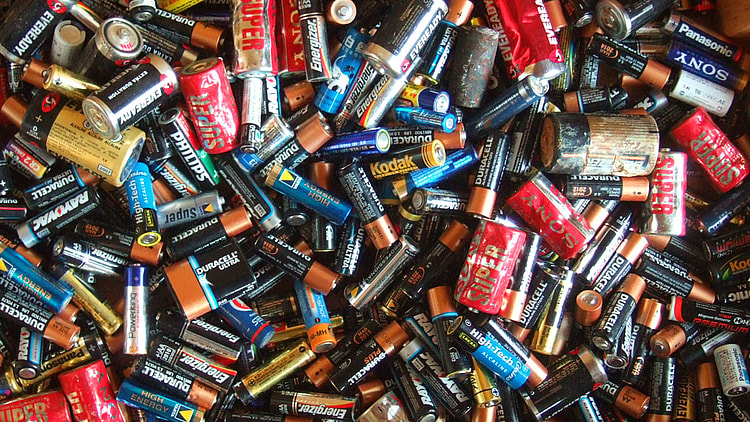
Solid-State batteries will change energy storage solutions forever. Impacting every piece of battery-powered tech, from wearables to electric vehicles:
Why Are Batteries Important?
Batteries offer really high energy densities and portability. These chemical cells store energy in the form of chemical potential that can be used by us anytime without tethering a device to a power source.
Lithium-Ion batteries are the most commonly used today. These were initially developed for smaller-scale consumer devices like laptops and phones, etc.
But with the booming popularity of Electric Vehicles, companies like Tesla have found ways to harness their energy-storing potential to power whole cars.
CHECK OUT: 7 Best Rechargeable Batteries You Can Buy Today
The Downside Of Lithium-Ion Batteries
Like anything good, lithium-Ion batteries come with a catch. In fact, they come with many catches:
- Lithium-Ion batteries are known to catch fire or explode if they are damaged: What happens is that all of the energy stored inside the battery is released in a really short period of time, and that is destructive.
- Lithium-Ion batteries age poorly: These batteries lose the majority of their energy-storing capacity after 500 to 1000 charging cycles. This creates a problem of sustainability as new batteries have to be made to replace the old ones.
- Mining lithium is harmful to the environment.
So it is no wonder scientists have been looking for alternatives.
CHECK OUT: 5 Most Valuable Car Companies – Rise Of The EVs
So, What Are Solid-State Batteries?
- These are batteries that have both solid electrodes and solid electrolytes.
- They can be based on a range of materials like oxides, sulfides, phosphates, polyethers, polyesters, etc.
- They can also come in a range of forms like ceramics, glass, and solid polymers.
- The working principle behind solid-state batteries is the same as any other battery. Energy is stored as chemical potential and the flow of ions from one electrode to the other generates an electric current that we can use to run our electronics.
Amazingly, the concept of a solid-state battery is not new. Michael Faraday, a celebrated physicist was the first to discover solid-state electrolytes and lay the foundations of solid-state ionics in the 19th century.
However, no significant progress had been made up until a few decades ago.
The Advantages Of Solid-State Batteries?
Even though the fundamentals behind solid-state batteries remain the same. They offer a wide range of advantages over conventional batteries:
The first major advantage is offering higher energy densities. Current estimates say that consumer-grade solid-state batteries could offer 2x to 10x more energy storage space compared to the same-sized battery.
Just imagine that for a second. A phone that currently lasts for a day on a single charge, would last you 10 days with solid-state batteries powering.
Electric Vehicles that currently give a range of 300 miles could give you a range of 3000 miles. It even opens the potential for companies to reduce the size of the battery, because honestly who needs 3000 miles of range.
Solid-state batteries also have faster rates of charging and have an increased life cycle as compared to other batteries.
Solid-state batteries also self-discharge slowly, meaning they do not lose their charging as easily when not in use. And unlike lithium-ion batteries, solid-state batteries are safer.
Conclusion
The big question is if they are so good, why aren’t they already in the market?
The main reason behind this technology is that the industry is having problems scaling it because solid-state batteries remain very expensive to produce.
But that has not stopped dozens of companies from working on that issue and it will not be long before solid-state batteries become an integral part of our lives.
